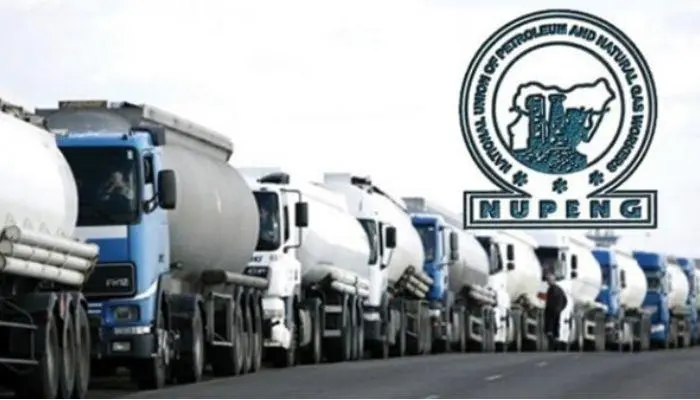The bustling city of Sokoto is teetering on the brink of a severe transportation crisis as members of the Nigeria Union of Petroleum and Natural Gas Workers (NUPENG) initiated a shutdown of filling stations across the state capital. Commencing their action on Monday, union officials systematically closed petrol outlets and obstructed the movement of petroleum tankers along major arteries, including Gusau Road and other crucial highways connecting Sokoto to neighboring states. This abrupt disruption has sparked immediate concerns about impending fuel scarcity, leaving residents, motorists, and businesses apprehensive about soaring transportation costs and the wider ramifications for the local economy.
The NUPENG enforcement action unfolded swiftly and decisively, with officials strategically placing barricades and symbolic leaves at key points along major routes, effectively cutting off the supply and distribution of fuel within the metropolis. Eyewitnesses described scenes of confusion and frustration as motorists encountered closed stations and halted tankers. While NUPENG representatives remained tight-lipped and refused to provide on-camera statements, an enforcement member, speaking on condition of anonymity, revealed that the shutdown order originated from the national leadership at midnight. This lack of official communication from NUPENG’s national body further compounded the uncertainty and anxiety gripping the city.
The sudden disruption has sent ripples of concern throughout the city, particularly among those reliant on transportation for their livelihoods. Commercial tricycle operators, like Bello Musa, voiced their anxieties about the potential impact on their income and the broader economic consequences. Musa expressed his dismay at finding most filling stations closed, highlighting the direct link between fuel availability and his ability to earn a living. He, like many others, feared the inevitable surge in transport fares should the shutdown persist, emphasizing the widespread impact on all segments of society. The lack of clarity regarding the reasons behind the strike further exacerbated the sense of unease and helplessness among the affected residents.
The looming fuel scarcity poses a multifaceted challenge for Sokoto. Beyond the immediate impact on transportation costs, the potential ripple effects extend to various sectors of the economy. Businesses reliant on transportation for the movement of goods and services face potential disruptions in their operations, potentially leading to shortages and increased prices. The agricultural sector, a crucial component of Sokoto’s economy, is particularly vulnerable to fuel shortages, which can impact the timely transportation of produce from farms to markets, leading to spoilage and economic losses for farmers. The uncertainty surrounding the duration of the shutdown further complicates planning and investment decisions, adding another layer of complexity to the already precarious situation.
The lack of official communication from NUPENG’s national leadership has created an information vacuum, leaving residents and businesses in the dark about the motivations behind the shutdown and the expected timeline for a resolution. The absence of a clear explanation fueled speculation and rumors, further contributing to the anxiety gripping the city. The lack of transparency also hampers efforts to mitigate the impact of the shutdown, as stakeholders are unable to make informed decisions in the face of uncertainty. This situation underscores the crucial role of open communication in crisis management and the need for timely and accurate information dissemination to facilitate informed responses and minimize disruption.
The unfolding situation in Sokoto highlights the vulnerability of cities to disruptions in essential services like fuel supply. The rapid escalation of the crisis underscores the interconnectedness of various economic sectors and the potential for cascading effects from seemingly isolated events. The lack of preparedness and the absence of contingency plans further exacerbate the impact of such disruptions, emphasizing the need for proactive measures to ensure resilience and minimize the impact on vulnerable populations. The Sokoto fuel crisis serves as a stark reminder of the importance of robust infrastructure, effective communication, and transparent governance in maintaining stability and ensuring the well-being of communities. The situation underscores the need for dialogue and collaboration between government, labor unions, and other stakeholders to address the root causes of such disruptions and prevent future crises.


